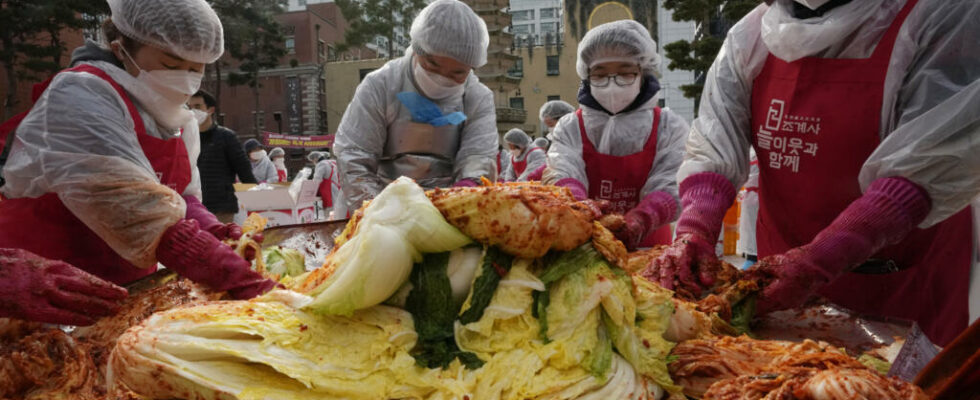Will South Koreans be able to enjoy kimchi, one of their favorite traditional dishes this year? Faced with the threat to the production of napa cabbage, the staple food of this dish, the South Korean government declared, Wednesday, October 23, that it would supply 24,000 tons of cabbage from these national stocks to support kimchi production.
1 min
Kimchi is a fermented, spicy dish made with red chili powder and vegetables such as radishes, cucumber or, even better, cabbage. But this pillar of gastronomy in South Korea is today threatened by global warming.
Napa cabbage is grown in the country’s mountains, where the temperature never exceeds 25°C at night. But this year, the Korean Meteorological Administration recorded the hottest temperatures since 1973.
Also readSeoul experienced its longest series of “tropical nights”, 26 days without temperatures below 25C°
And these rising temperatures impacted cabbage harvests and caused a drop in production, which caused the price of napa cabbage to skyrocket. The Ministry of Agriculture therefore took the problem head on and announced that it would provide 24,000 tonnes of cabbage to support kimchi production this year. He also announced the creation of an emergency stock of 1,000 tonnes of cabbage to deal with possible disruptions in supplies.
But despite these preventative measures, some studies warn that South Korea may one day no longer be able to grow napa cabbage, due to the climate change.
Also readTemple cuisine
